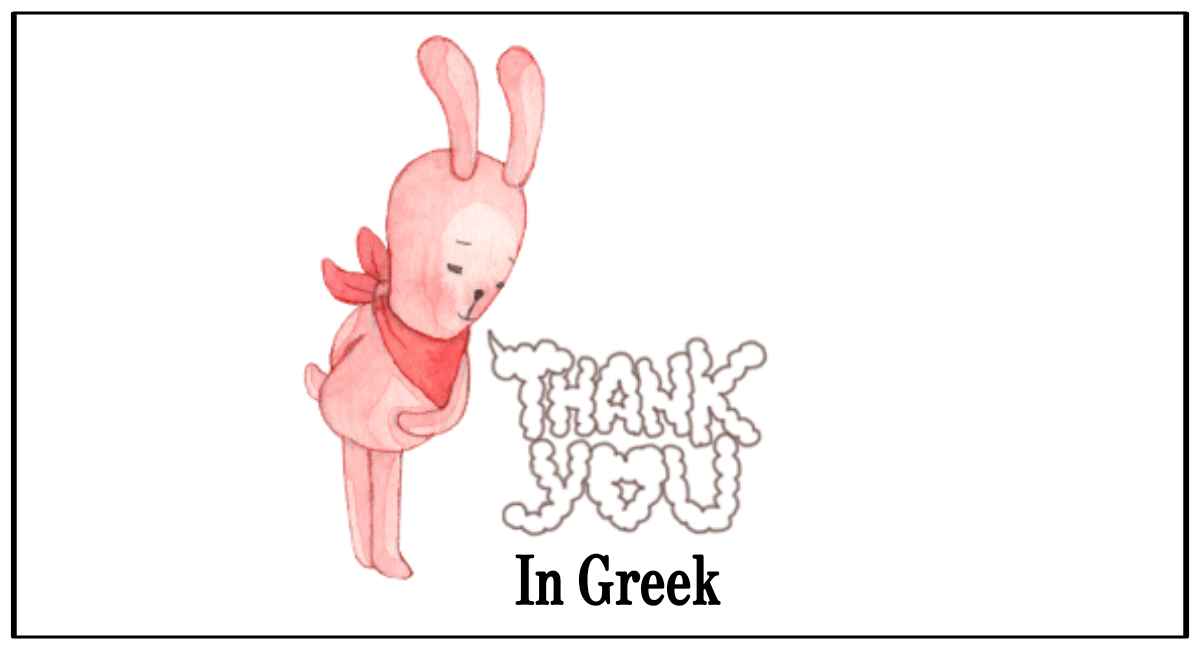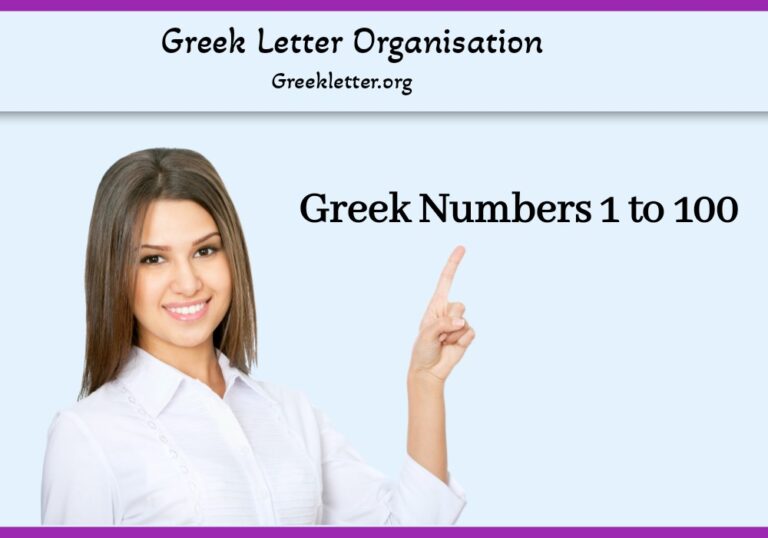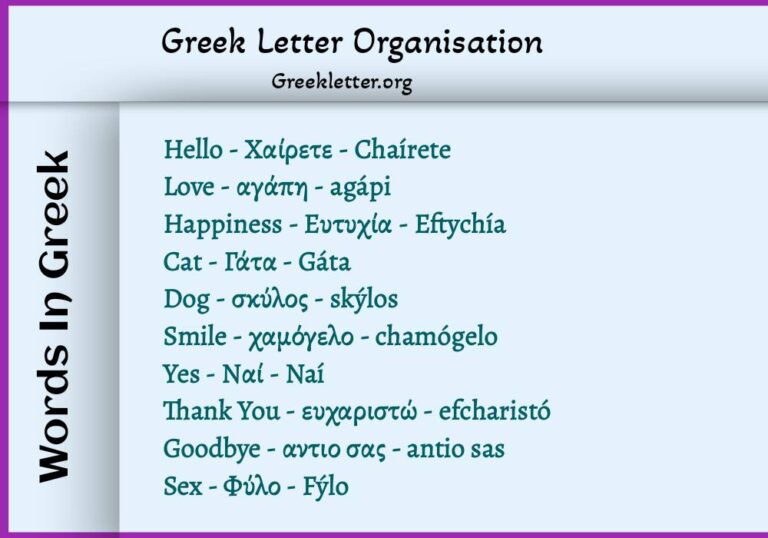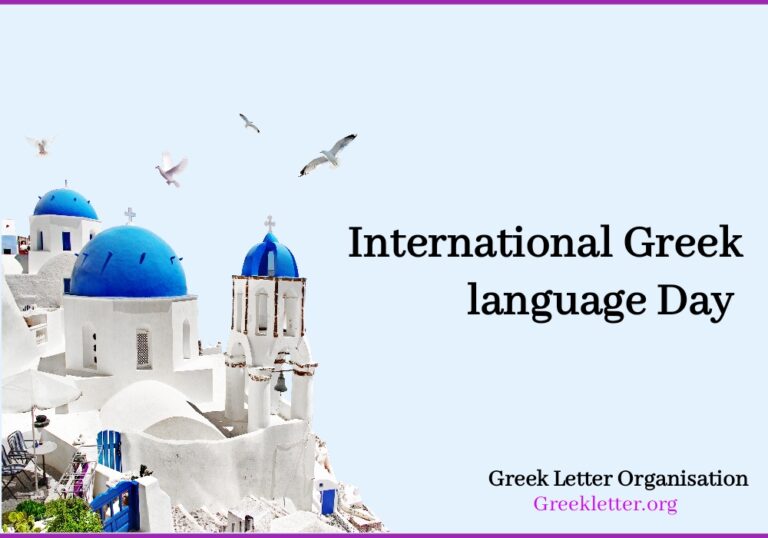How To Say Thank You Very Much In Greek [Audio]
Have you ever wanted to express your gratitude in Greek but needed to figure out how? Thank you is essential to showing appreciation and respect, regardless of language.
Whether you’re planning a trip to Greece or want to learn a new phrase, this article will guide you on saying thank you in Greek.
From the basic thank you for expressing heartfelt gratitude to thank you very much, we’ll explore different ways to show your appreciation in this beautiful language.
So, let’s dive into Greek culture and discover the art of saying thank you!
How To Say Thank You In Greek
To express gratitude in Greek, the most commonly used phrase is “Ευχαριστώ” (Efcharistó). This word carries the same meaning as “Thank you” in English and is used in various situations to convey appreciation. Here’s a detailed explanation:
Ευχαριστώ (Efcharistó):
- Pronunciation: ef-kha-ree-STOH
- Meaning: “Ευχαριστώ” (Efcharistó) is the standard and versatile way to say “Thank you” in Greek. It encompasses a wide range of expressions of gratitude, from a simple “thank you” for a favor to a more heartfelt appreciation.
- Usage: This word is suitable for both formal and informal situations. Whether you’re thanking a friend, a colleague, a stranger, or a service provider, “Ευχαριστώ” is the go-to expression.
- Context: You can use “Ευχαριστώ” in everyday interactions, such as when someone helps you, gives you a gift, or provides a service. It’s an essential word to know for polite and gracious communication in Greek culture.
By using “Ευχαριστώ,” you can express your appreciation and gratitude in a straightforward and universally understood manner in Greece.
How Do You Say Thank You In Greek
To express gratitude and say “Thank you” in Greek, you use the word “Ευχαριστώ” (Efcharistó). Here’s a detailed explanation:
Ευχαριστώ (Efcharistó):
- Pronunciation: ef-kha-ree-STOH
- Meaning: “Ευχαριστώ” (Efcharistó) is the equivalent of “Thank you” in English. It’s a versatile and commonly used expression of appreciation and gratitude for a favor, help, kindness, or assistance.
- Usage: This word is suitable for various formal and informal situations. Whether you’re expressing thanks to a friend, family member, colleague, or even a stranger, “Ευχαριστώ” is the polite and gracious way to do so.
- Context: You can use “Ευχαριστώ” in various everyday scenarios, such as when someone holds the door for you, gives you a gift, offers assistance, or provides a service. It’s an essential expression of courteous and appreciative communication in Greek culture.
Whether you’re visiting Greece or interacting with Greek-speaking individuals, using “Ευχαριστώ” will help you express your gratitude and show your appreciation in a polite and universally understood manner.
How To Say Thanks In Greek
To express gratitude and say “Thanks” in Greek, you can use the word “Ευχαριστώ” (Efcharistó). Here’s a detailed explanation:
Ευχαριστώ (Efcharistó):
- Pronunciation: ef-kha-ree-STOH
- Meaning: “Ευχαριστώ” (Efcharistó) is the standard way to say “Thanks” or “Thank you” in Greek. It’s a versatile and widely used expression of appreciation and gratitude for any act of kindness, help, favor, or service.
- Usage: This word is appropriate for various formal and informal situations. Whether you want to thank a friend, family member, colleague, or even a stranger, “Ευχαριστώ” is a courteous way to express your thanks.
- Context: You can use “Ευχαριστώ” in numerous everyday scenarios, such as when someone assists you, offers you a gift, provides a service, or shows you kindness. It’s an essential word for gracious and respectful communication in Greek culture.
Whether you’re traveling to Greece or engaging with Greek-speaking individuals, using “Ευχαριστώ” will help you express your gratitude in a polite and universally understood manner. It’s a simple yet meaningful way to acknowledge and appreciate the kindness of others.
How To Say Thank You Very Much In Greek
To express heartfelt gratitude and say “Thank you very much” in Greek, you can use the phrase “Ευχαριστώ πολύ” (Efcharistó polí). Here’s a detailed explanation:
Ευχαριστώ πολύ (Efcharistó polí):
- Pronunciation: ef-kha-ree-STOH poh-LEE
- Meaning: This phrase combines the standard expression “Ευχαριστώ” (Efcharistó), which means “Thank you,” with “πολύ” (polí), which means “very much.” Together, it conveys a profound sense of gratitude and appreciation.
- Usage: “Ευχαριστώ πολύ” is a polite and gracious way to express deep gratitude and thank someone sincerely for their kindness, help, generosity, or any significant favor.
- Context: You can use this phrase in various situations to emphasize the extent of your appreciation. Whether you’re thanking friends, family, colleagues, or strangers, “Ευχαριστώ πολύ” shows that you are thankful for their actions.
Using “Ευχαριστώ πολύ” in Greek demonstrates a high level of appreciation and is a courteous way to convey your heartfelt thanks more profoundly.
How You Say Thank You In Greek
To say “Thank You” in Greek, you use the word “Ευχαριστώ” (Efcharistó). Here’s a detailed explanation:
Ευχαριστώ (Efcharistó):
- Pronunciation: ef-kha-ree-STOH
- Meaning: “Ευχαριστώ” (Efcharistó) is the standard and most commonly used way to express gratitude and say “Thank You” in Greek. It covers a broad spectrum of situations where you want to convey your appreciation, whether for a favor, a kind gesture, assistance, or any act of kindness.
- Usage: This word is suitable for both formal and informal contexts. Whether you’re thanking a friend, family member, colleague, or even a stranger, “Ευχαριστώ” is the polite and respectful way to express your gratitude.
- Context: You can use “Ευχαριστώ” in various everyday scenarios, such as when someone holds the door for you, gives you a gift, provides a service, or helps you in any way. It’s a fundamental expression of showing appreciation and politeness in Greek culture.
Learning and using “Ευχαριστώ” allows you to convey your thanks in a universally understood and gracious manner when interacting with Greek-speaking individuals or in a Greek-speaking environment.
How To Say Thanks In Greek
To express gratitude and say “Thanks” in Greek, you use the word “Ευχαριστώ” (Efcharistó). Here’s a detailed explanation:
Ευχαριστώ (Efcharistó):
- Pronunciation: ef-kha-ree-STOH
- Meaning: “Ευχαριστώ” (Efcharistó) is the standard and most commonly used way to express gratitude and thank someone in Greek. It is a versatile expression that covers a wide range of situations where you want to convey appreciation, whether for a favor, help, kindness, or assistance.
- Usage: This word is appropriate for various contexts, including formal and informal situations. Whether you’re thanking friends, family, colleagues, or even strangers, “Ευχαριστώ” is the polite and respectful way to express your thanks.
- Context: You can use “Ευχαριστώ” in various everyday scenarios, such as when someone assists you, gives you a gift, provides a service, or shows you kindness. It’s a fundamental expression of gratitude and courtesy in Greek culture.
By using “Ευχαριστώ,” you can convey your thanks in a universally recognized and gracious manner when interacting with Greek-speaking individuals or in a Greek-speaking environment. It’s a simple yet meaningful way to acknowledge and appreciate the kindness of others.
How Do You Say Thanks In Greek
To express gratitude and say “Thanks” in Greek, you use the word “Ευχαριστώ” (Efcharistó). Here’s a detailed explanation:
- Ευχαριστώ (Efcharistó):
- Pronunciation: ef-kha-ree-STOH
- Meaning: “Ευχαριστώ” (Efcharistó) is the standard and most commonly used way to convey gratitude and say “Thanks” in Greek. It encompasses many expressions of appreciation and thanks for any kindness, help, favor, or service.
- Usage: This word is versatile and suitable for formal and informal situations. Whether you want to thank a friend, family member, colleague, or even a stranger, “Ευχαριστώ” is the polite and gracious way to do so.
- Context: You can use “Ευχαριστώ” in numerous everyday scenarios, such as when someone assists you, offers you a gift, provides a service, or shows you kindness. It’s an essential expression of courteous and appreciative communication in Greek culture.
By using “Ευχαριστώ,” you can express your thanks in a straightforward and universally understood manner when interacting with Greek-speaking individuals or in a Greek-speaking environment. It’s a word that reflects politeness and acknowledges the goodwill of others.
How To Say Thank You Very Much In Greek
To express deep gratitude and say “Thank you very much” in Greek, you can use the phrase “Ευχαριστώ πολύ” (Efcharistó polí). Here’s a detailed explanation:
Ευχαριστώ πολύ (Efcharistó polí):
- Pronunciation: ef-kha-ree-STOH poh-LEE
- Meaning: “Ευχαριστώ πολύ” combines the standard Greek expression “Ευχαριστώ” (Efcharistó), which means “Thank you,” with “πολύ” (polí), meaning “very much.” This phrase expresses a profound and heartfelt sense of gratitude and appreciation.
- Usage: “Ευχαριστώ πολύ” is a polite and gracious way to convey your thanks when you want to emphasize the extent of your appreciation. It’s used in various situations to show that you are sincerely thankful for a significant favor, help, kindness, or generosity.
- Context: You can use this phrase when you want to express profound thanks to friends, family members, colleagues, or anyone who has gone above and beyond to assist you or has shown extraordinary kindness. It reflects a high level of appreciation and respect.
“Ευχαριστώ πολύ” is a powerful expression of gratitude in Greek, and it demonstrates the depth of your appreciation for someone’s actions or generosity. It’s a courteous and heartfelt way to convey your thanks on special occasions or when ordinary thanks may not suffice.
How Do You Say Thank You In Greek Language
To convey gratitude and say “Thank you” in the Greek language, you use the word “Ευχαριστώ” (Efcharistó). Here’s a detailed explanation:
Ευχαριστώ (Efcharistó):
- Pronunciation: ef-kha-ree-STOH
- Meaning: “Ευχαριστώ” (Efcharistó) is the standard and widely accepted way to express gratitude and offer thanks in the Greek language. It covers a broad spectrum of situations where you want to convey your appreciation for a favor, help, kindness, or any act of assistance.
- Usage: This word is versatile and suitable for various formal and informal contexts. Whether you want to thank a friend, family member, colleague, or even a stranger, “Ευχαριστώ” is the polite, respectful, and universally understood way to express your gratitude.
- Context: You can use “Ευχαριστώ” in various everyday scenarios, such as when someone assists you, offers you a gift, provides a service, or shows you kindness. It is an essential expression of courteous and appreciative communication in Greek culture.
“Ευχαριστώ” not only allows you to convey your thanks effectively in the Greek language but also reflects politeness and acknowledges the goodwill of others. Whether you’re visiting Greece or interacting with Greek-speaking individuals, this word is your key to expressing gratitude in a universally recognized and gracious manner.
How Do You Say Thank You In Greek Audio
A common way to express gratitude in Greek is by saying efcharistó (ευχαριστώ). This word carries the weight of sincere appreciation and can be used in various contexts, from expressing gratitude for a simple favor to thanking someone for a life-changing opportunity. The pronunciation may seem challenging at first glance, but fear not – with a little practice, you’ll say it confidently.
Click here to listen to the audio pronunciation:
Ευχαριστώ Audio
As you become more familiar with Greek, you’ll discover additional ways to say thank you, depending on the situation. For instance, if you want to show greater appreciation or politeness, you can use phrases like polú efcharistó (πολύ ευχαριστώ), which means thank you very much.
Alternatively, if someone goes above and beyond for you, a heartfelt s’eyxaristó polí (σε ευχαριστώ πολύ), meaning I thank you greatly, will reflect your deep gratitude. So go ahead and immerse yourself in the richness of the Greek language – everyone loves being thanked!
Conclusion Points
In conclusion, expressing gratitude in Greek is a simple yet meaningful gesture. Whether you opt for efharistó to say thank you, efcharistó polý to convey thanks very much, or efcharistó poly to express gratitude with warmth and sincerity, the Greek language offers a range of phrases to suit any situation.
Remember that showing appreciation is polite and fosters positive relationships and connections. So why not try incorporating these phrases into your everyday conversations? Start by practicing them with native Greek speakers or individuals familiar with the language. By doing so, you will not only broaden your linguistic skills but also make someone’s day a little brighter.
FAQs
1. How do you say thank you in Greek?
In Greek, the phrase for thank you is ευχαριστώ (efharisto).
2. How can I express gratitude in Greek?
You can express gratitude by saying ευχαριστώ πολύ (efharisto poli), which means thank you very much.
3. What is the Greek equivalent of thanks?
The Greek equivalent of thanks is ευχαριστίες (efharisties).
4. How would I say thank you very much in Greek?
To say thank you very much, use the phrase ευχαριστώ πάρα πολύ (efharisto para poli).
5. Can you provide a basic way to say thank you in Greek?
Certainly! A basic way to say thank you in Greek is by using the word ευχαριστώ (efharisto).
6. Is there a more formal way to express gratitude in Greek?
Yes, if you want to be more formal, you can use the phrase σας ευχαριστώ πολύ (sas efharisto poli), which means I thank you very much.
7. What are some casual ways to say thanks in Greek?
Some casual ways to say thanks are using the expressions:
– ευχάριστος/η (euharistos/i) – meaning thankful
– μπλέξω τη ζωή μου γι’ αυτόν/ή ‘γι’ αυτήν (blekso ti zoi mou gia auton/i ‘gi’ aften) – meaning I messed up my life for him/her.
8. How do you respond to someone saying thank you in Greek?
A common response to someone saying thank you in Greek is to say παρακαλώ (parakalo), which means you’re welcome.






